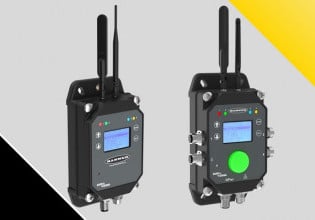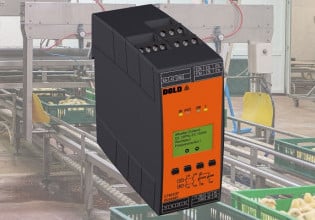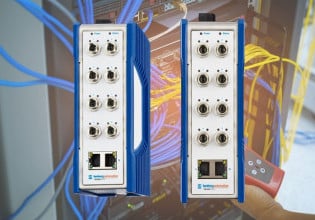HMS Networks Links Raspberry Pi to Industry With New Adapter
HMS and Anybus have made a goal of easing integration between various industrial protocols with the new Raspberry Pi adapter board for the CompactCom module.
It is common in most factories to use more than one type of industrial protocol. Typically, a machine will use the protocol that the controller (PLC) supports. When developing automation devices, you need to be flexible with your protocol choice.
Converting Industrial Protocols
Developing a device that only supports one protocol will limit your space in the market. Anybus from HMS has become the industry standard for converting and providing different industrial protocol interfaces for automation devices. Recently, Anybus by HMS Networks has released an adapter to interface the popular ComactCom module with a Raspberry Pi for the development of data streams.

A Raspberry Pi that’s equipped with the new Anybus gateway for network connectivity. Image used courtesy of HMS Networks
Raspberry Pi Compact Computer
If you are not familiar with the Raspberry Pi, it is a compact computer equipped with a GPU, onboard memory, and onboard sound. The computer makes use of the popular Linux operating system based on Debian. The Raspberry Pi has grown significantly in popularity over the last ten years, especially with the home automation DIY crowd.
Today, it is not uncommon to find a Raspberry Pi being used for small-scale automation projects in an industrial setting. Anybus is making use of robust architecture and open-source software to allow users to develop their protocol data on the Raspberry Pi for the CompactCom module.

The most recent version of the Raspberry Pi 5 computer. Image used courtesy of Raspberry Pi
CompactCom Module
If you have developed an automation device, you will want to make sure you can incorporate popular industrial protocols such as PROFINET, EtherCAT, or Ethernet/IP, but having to accommodate different communication chips on your circuit board could increase the cost of manufacturing.
The CompactCom module from Anybus is a standard interface that can be ordered for popular protocols. The module is an all-in-one device with hardware, firmware, and connection ports. Simply slide different communication modules into the standard connector that is wired to your circuit board. You can easily support many different communication protocols without having to re-tool manufacturing equipment.
Communication Testing
Before releasing a product on the market, you want to test your communication protocol thoroughly. If you are making use of the CompacCom module from Anybus, you will want to test as many protocols as you will be offering. To make this process easier, Anybus offers adapter boards that allow you to connect a CompactCom module to a microcontroller.
Recently, Anybus has added the Raspberry Pi to the list of supported microcontrollers. By using the Raspberry Pi to test and evaluate the CompactCom users can develop automation tasks, run scripts, log data, or recreate crash scenarios, all of this is possible on a low-cost, compact computer.
Installation And First Use
Similar to other Raspberry Pi adapters (called “hats”), the adapter board from Anybus plugs directly into the Raspberry Pi GPIO pins, with four plastic stand-offs providing mechanical mounting support.
Once installed, simply slide in your choice of CompactCom module, connect your peripheral devices, and run the example code. Your CompactCom module should be up and communicating with your controller.
You can now start developing your communication data map and creating projects to link any kind of data source with an industrial IoT network.






